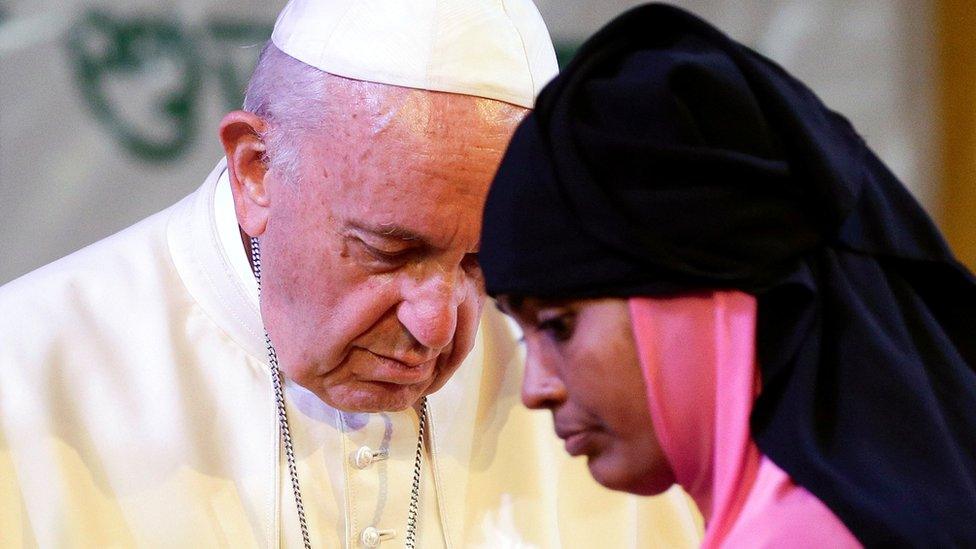Chile's female prisoners pin their hopes on Pope's visit
- Published
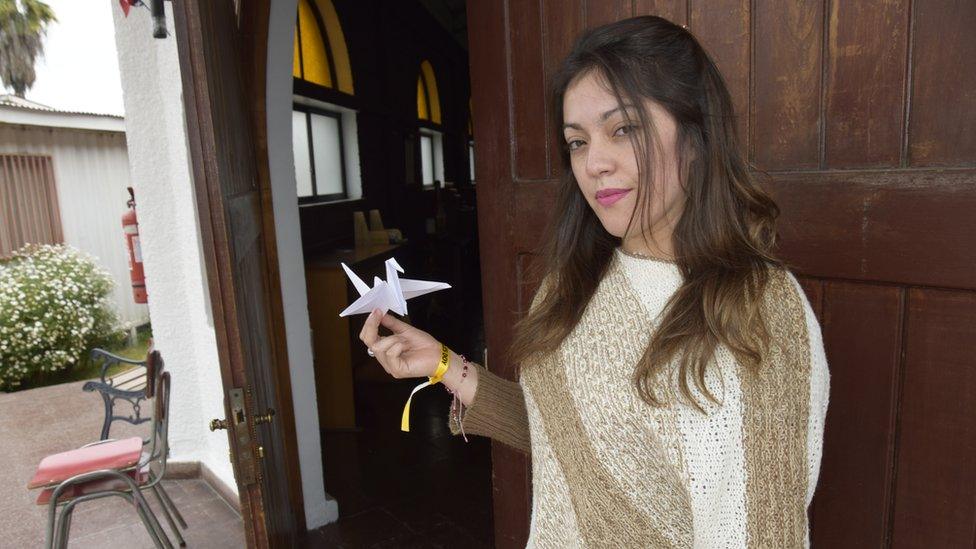
"Like most women here, I was caught trafficking drugs," says Estefanía while folding paper into white paper doves.
She is one of 4,000 women currently in jail in Chile. Estefanía (who prefers not to give her surname) has been in prison for two years and has three more left.
She is serving her sentence at San Joaquín, Chile's larges women's prison, where she and her fellow inmates are preparing to receive a special visitor.
On Tuesday Pope Francis will meet some of the inmates as part of a visit to Chile. It will be the first time he is going to a female penitentiary.
A group of prisoners is sitting in the jail's chapel making decorations.
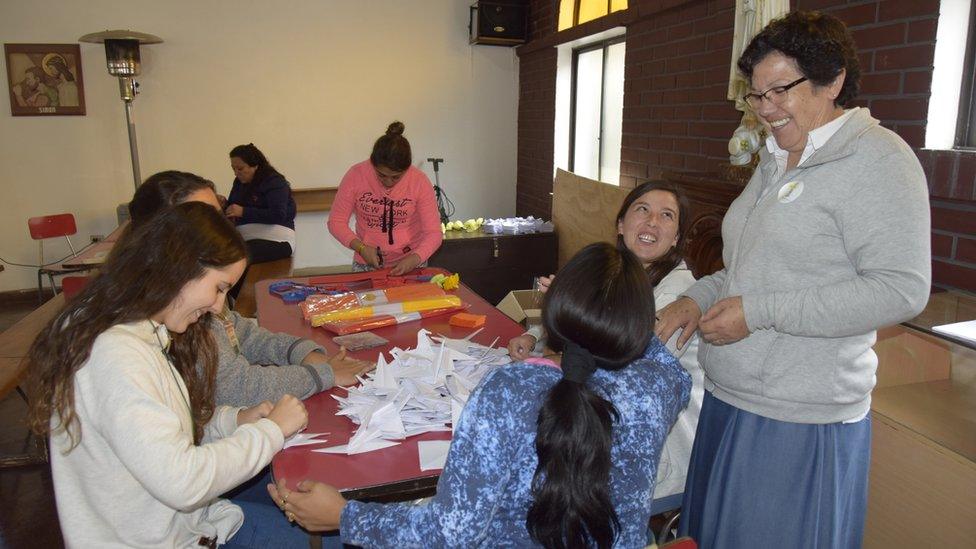
The atmosphere inside the prison has improved since news of the Pope's visit broke
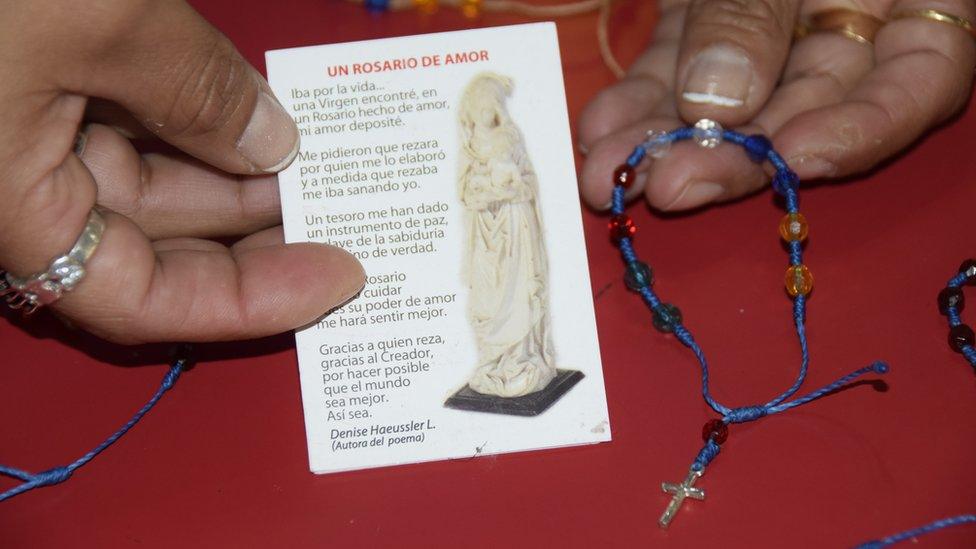
The inmates are making bracelets which they hope the Pope will bless
The doves, each with the name of a prisoner written on it, will be hung inside the prison gym along with brightly coloured paper flowers.
The women are also making bracelets out of beads and tiny crosses for the women held in other prisons, who will not get to meet the Pope.
"We want the Pope to bless them and then we will give them to the female prisoners."
Hope behind bars
News of the Pope's visit have the lifted spirits among the 620 women serving time in San Joaquín.
"There is a lot of jealousy and petty fighting in the prison amongst the inmates," says Luisa, another prisoner.
"We need an event where we can all get together and be at peace with one another and the Pope's visit will give us that," she says.
Only those who have shown good behaviour will be allowed to meet the Pope and Estefanía hopes to be among them.
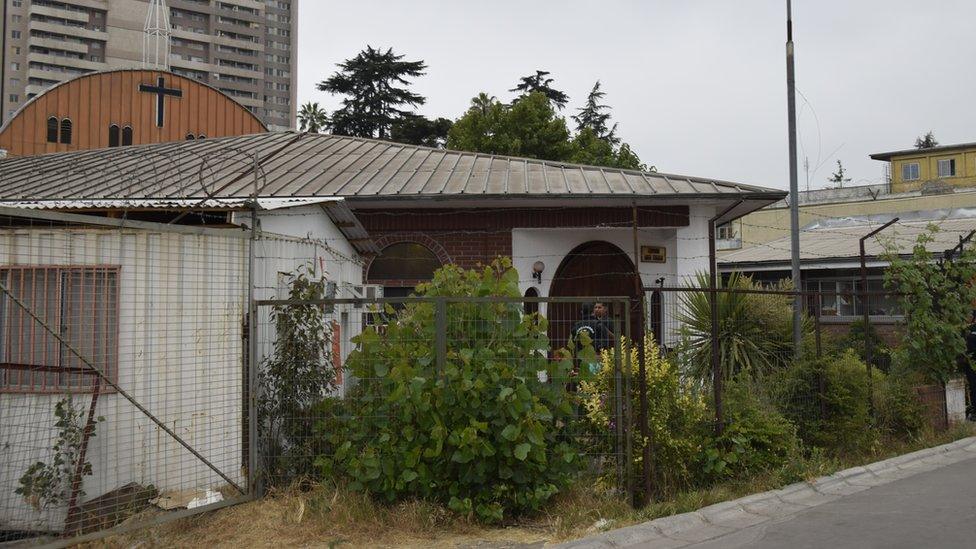
The chapel and its garden provide inmates with a quiet spot
She has enjoyed spending time in the prison's chapel and its garden full of brightly coloured flowers.
"We like it here, because it is much more peaceful that the rest of the prison. We can come to the chapel to pray and be together. It gives me peace," she says.
Sister Nelly is the prison chaplain. For the past 13 years she has been the one person many of the women turn to with their their problems.
She has also been key in the preparations for the Pope's visit, which she wants to be "a multi-coloured fiesta (party)".
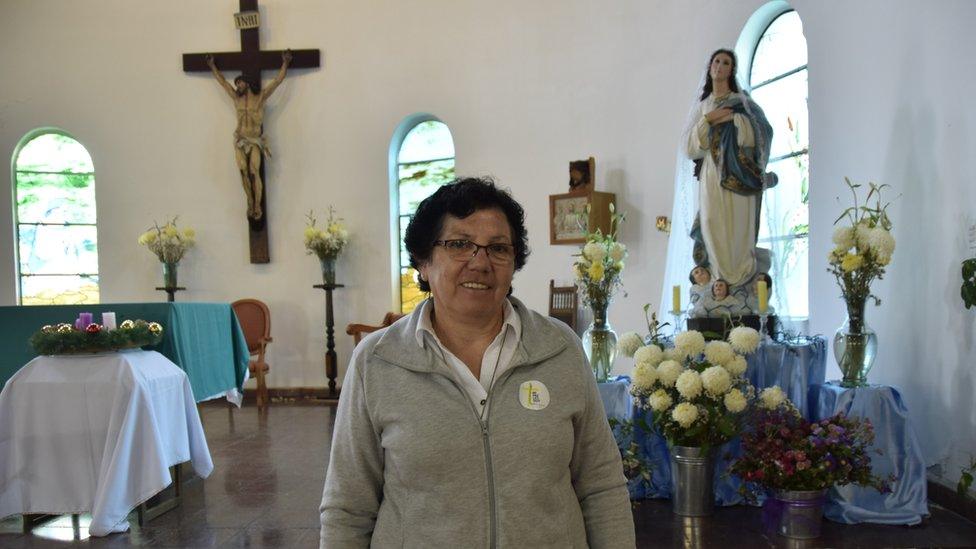
Sister Nelly has been the prison chaplain for 13 years
She also hopes that it will help the women recover their self-esteem and "pride as women, mothers and wives".
The majority of women in San Joaquín prison are mothers. The children can live with them inside the jail until they are two years old and after that they can come for weekly visits.
Estefanía gets to see her four-year-old son every Saturday. "I try to give him the best time I can. He talks to me about how he is getting on at school, we hug each other and laugh together."
She says drug dealing provided her with "easy money" but being in jail, separated from her son has made her regret her choices.
"I hate not being able to make his food, be at home with him and take him to nursery" she says.
Difficulty adapting to life outside
Sister Nelly says that one of the problems is that even with the best of intentions the women sometimes find it hard to get back on their feet once they are released.
"After three years of working at the prison I realised that many of the women kept coming back because they found it so hard to get back into society".
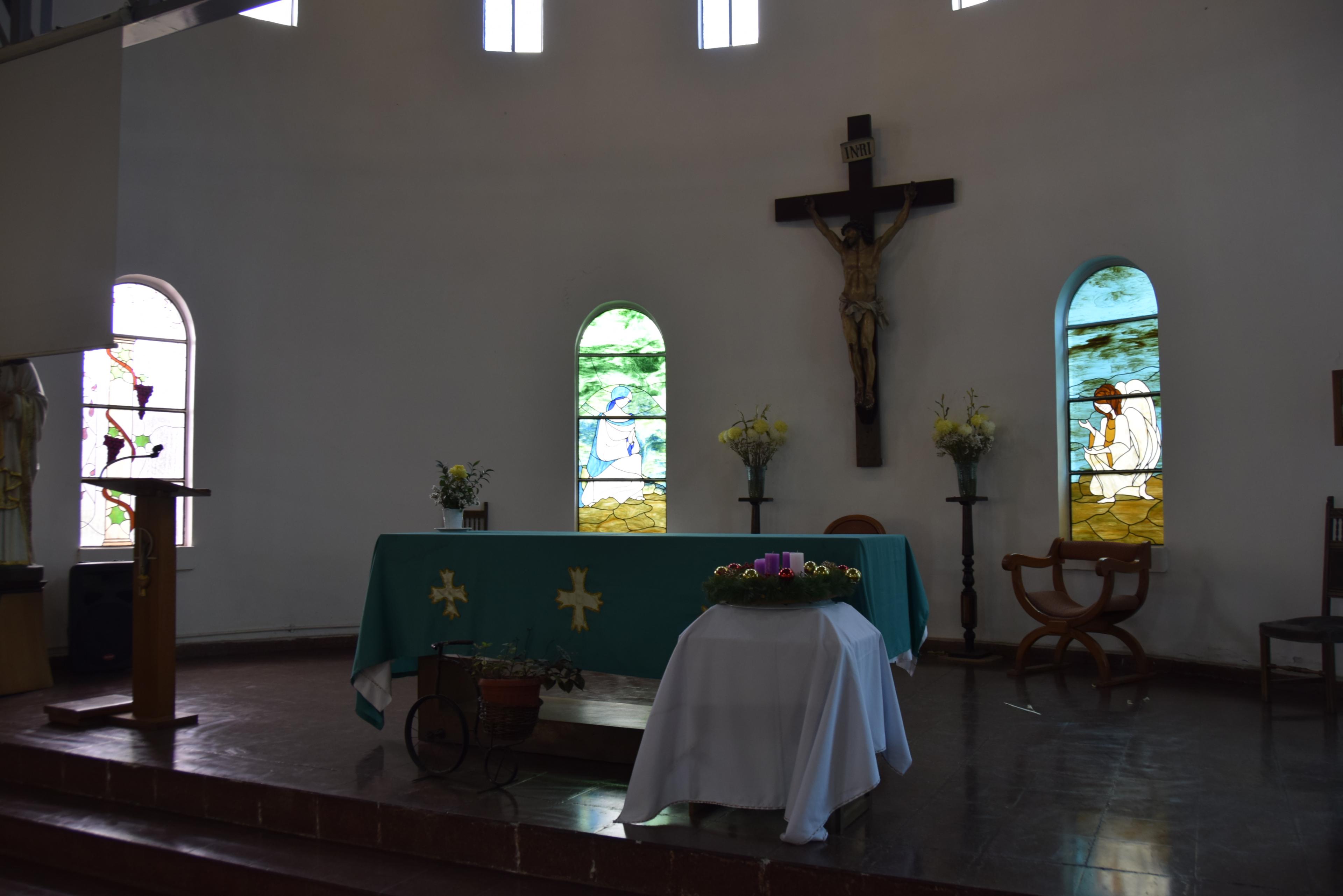
Sister Nelly does not just work in the jail's chapel, she also provides help outside the prison
She runs a charity called Mujer Levántate (Rise up woman). It has a house in Santiago where 10 women can live for a year and get help finding work and getting used to living independently again.
Mujer Levántate also helps inmates who are having trouble seeing their children, be it because the child's father does not want them to have contact with the mother or because it is difficult for relatives to bring the children to the jail for visits.
She hopes the Pope's visit will not only bring spiritual inspiration to the incarcerated women but also highlight the issue of mothers in prison to the outside world.
"I would love to see the government reduce the sentences of mothers with young children and to grant them more access to their kids," she says.
- Published25 December 2017
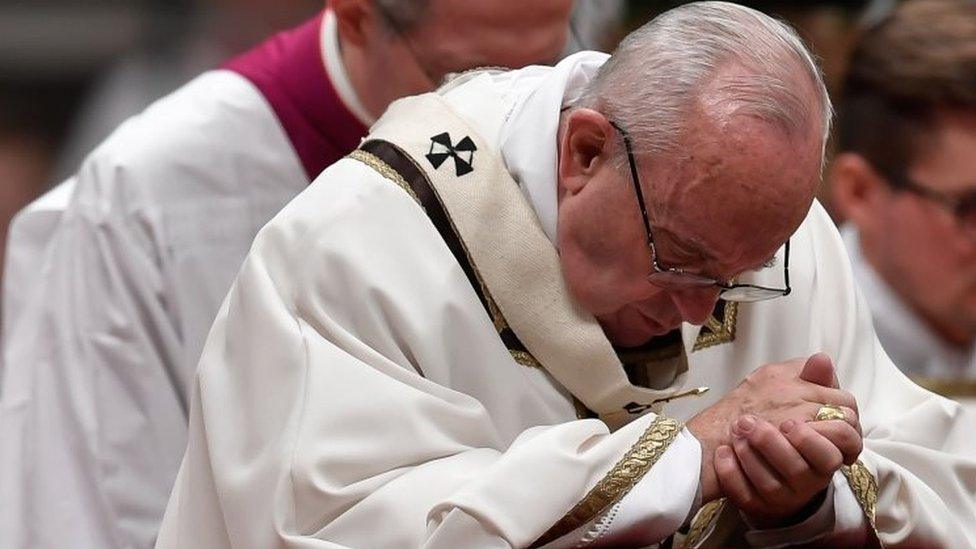
- Published1 December 2017
